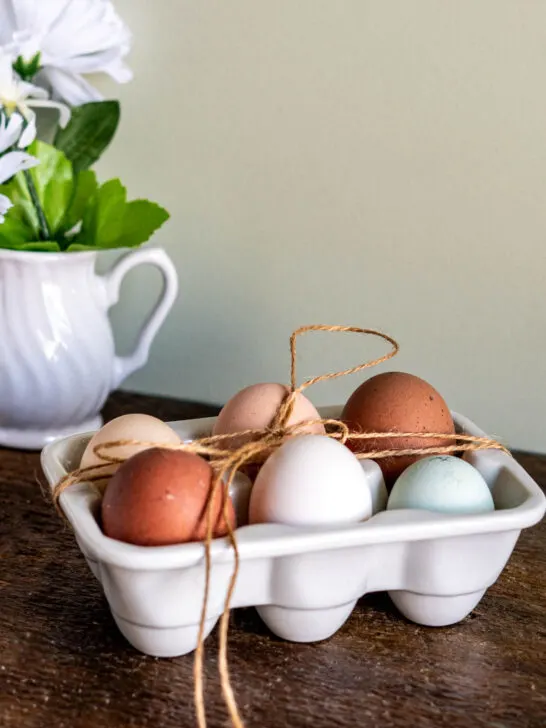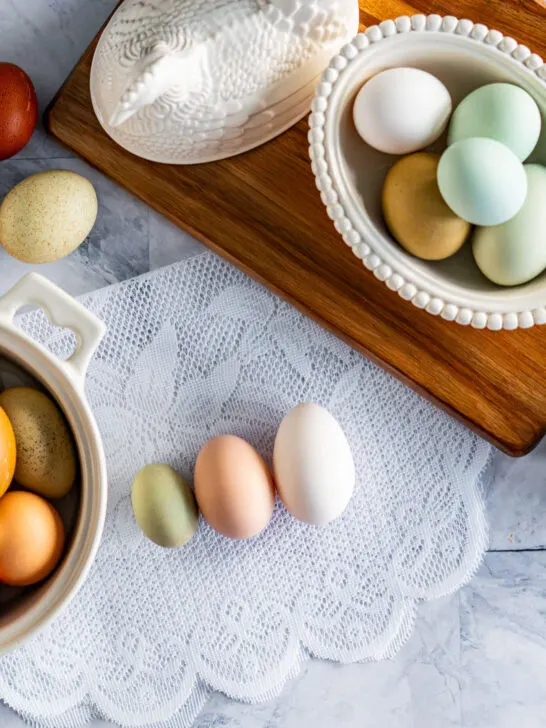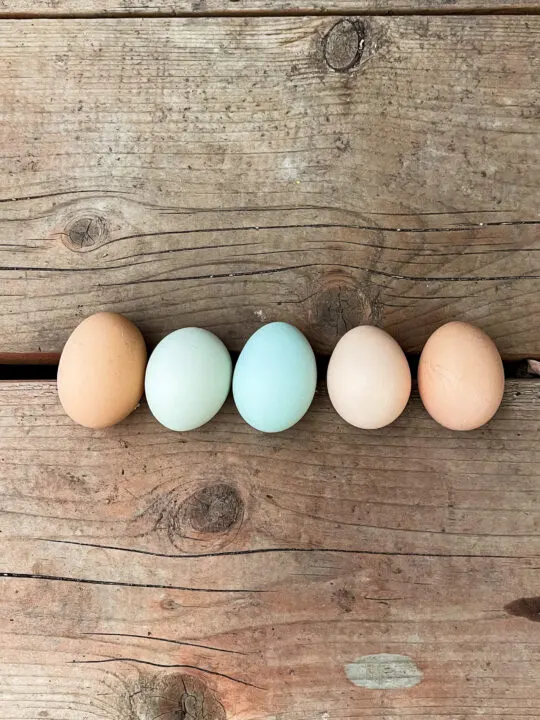If you've ever wondered if your chickens can eat cheese, you're not alone!!
Chickens are omnivores and I believe that like humans our feathered friends require a balanced diet for optimum health.
To be frank, they're not picky eaters! I've read countless chicken-keeping forum posts about these birds devouring gross things like styrofoam, or even snakes!
It almost makes you wonder why you're googling if your backyard chickens can eat cheese or not, doesn't it? Ha!
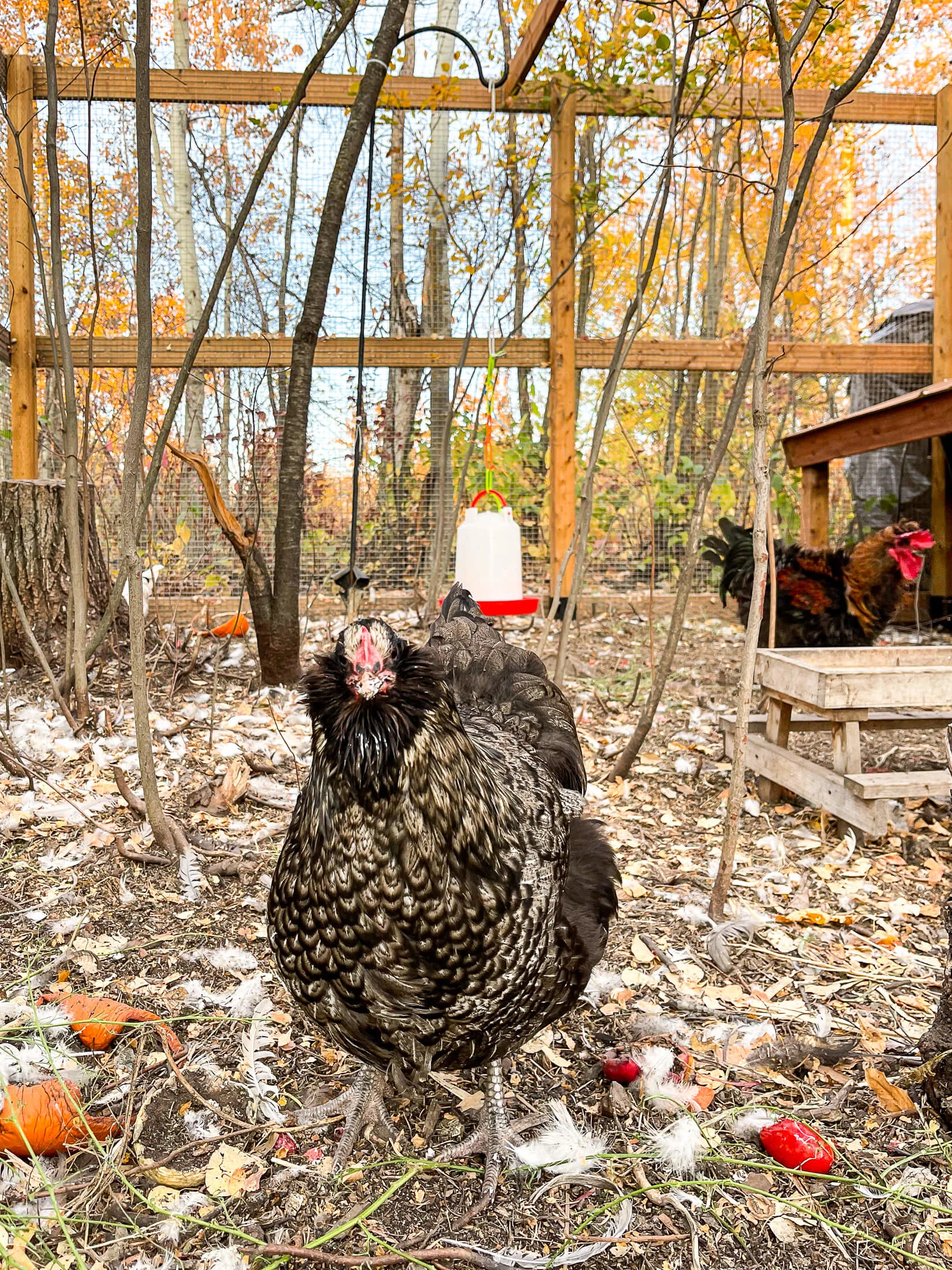
As an Amazon Associate I earn from qualifying purchases.
Jump to:
Can Chickens Eat Cheese?
Yes, your chickens can have cheese!
BUT!
There are important considerations when you're feeding your chickens something other than commercial ration. While your chickens love treats, it's important to ensure that you only feed your chickens these treats in moderation.
As a general rule, too many treats can affect your chickens negatively. Their feed is specially formulated to provide all the micro and macro nutrients they need, so adding too much excess food can throw their nutrition out of whack, especially fat-rich foods like cheese.
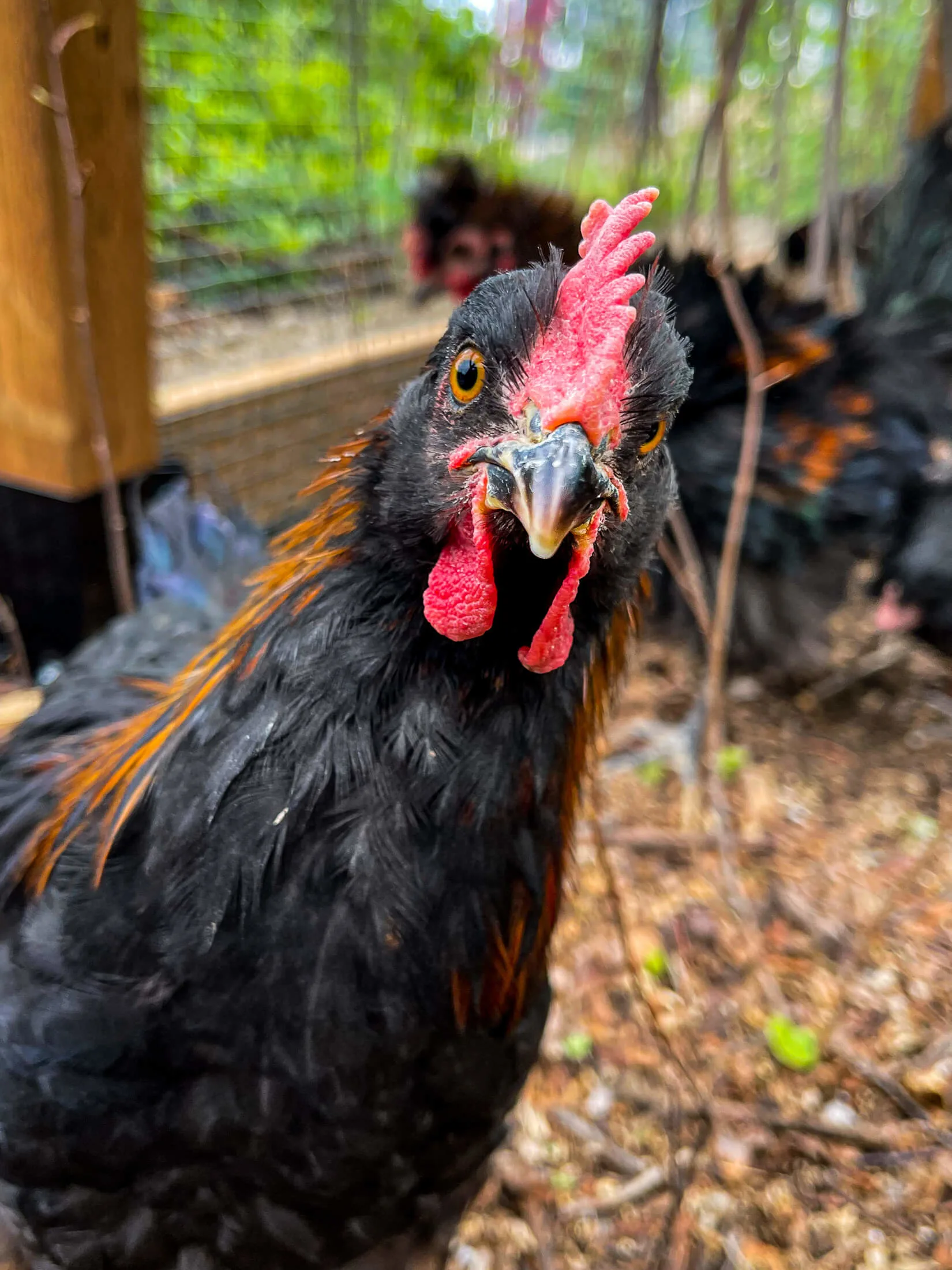
Is Cheese Healthy For My Flock?
This is not to say that cheese isn't healthy in small doses - cheese is a great source of calcium, healthy fats, and proteins.
Our hens' bodies work very hard in producing healthy eggs for us nearly every day, so it stands to reason that they could use a little boost. Cheese helps by offering calcium to offset the loss of calcium through each egg laid and because their bodies don't produce calcium, we must ensure they receive adequate amounts in their diet. Hens with insufficient calcium supplementation can suffer from poor bone health and lay eggs with poor-quality eggshells.
Cheese contains a complete protein, which means it provides all amino acids. Protein is incredibly important for egg production - each egg is packed with protein! Beyond that, proteins and amino acids are very beneficial for immune system health and feather production, often, during a molt, chicken keepers will increase the protein given to their flock to shorten the molt.
Cheese is also a great source of probiotics and almost every animal on earth (including humans) can benefit from fermented foods and improved gut health that comes with eating the products of fermentation.
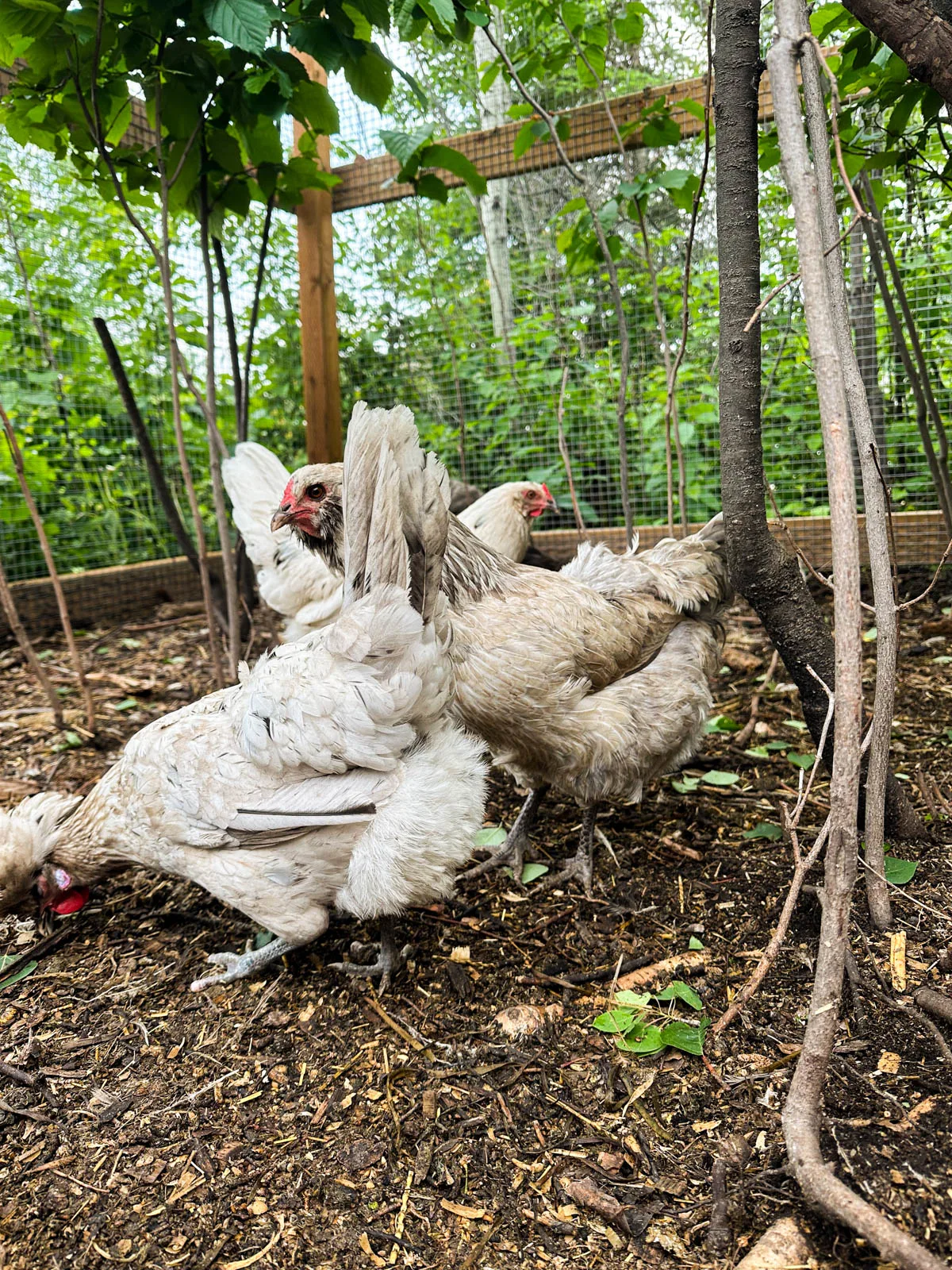
Cheese Downsides
It can't all be good! There are some side effects to feeding your flock cheese.
- Chickens' digestive systems are different than ours and they may have trouble digesting lactose from dairy products such as cheese and milk - too much cheese can cause them digestive upset, including diarrhea.
- Cheese has a high fat content and too much cheese can make for fat chickens! It may seem innocuous, but fat hens are more prone to health issues, poor laying, and more. Obesity in chickens is called fatty liver hemorrhagic syndrome.
More Chicken Content!
Feeding Chickens Cheese
I've fed my flock all the kinds of cheeses that we personally eat here on the homestead. They've loved it all, from cheddar to goat cheese to cottage cheese. As long as it is "human edible", it's cool to go to the birds.
By human edible, I mean something that is still recognizable. That huge chunk of moldy cheese you found in the back of the fridge that looks borderline sentient is not appropriate to feed to your birds (that should go to the compost pile). But a container of shredded mozzarella cheese that someone forgot to close the lid on and it dried out beyond something you'd enjoy eating but is still edible, is fair game.
Aside from practicing moderation and offering in small amounts when it comes to feeding your chickens cheese, you must also consider their limitations - an entire brick of cheese will be awfully hard for them to consume, while scattered shredded cheese would be much easier.
So when you're treating them, ensure that you're giving it to them in a format that they can actually eat. Otherwise, it may just sit in your chicken run, untouched, attracting pests and predators!
Don't forget to provide grit. Whenever your chickens are fed foods that are not commercial feed, you'll need to offer your birds grit supplementation. Grit helps to break down food in the gizzard.
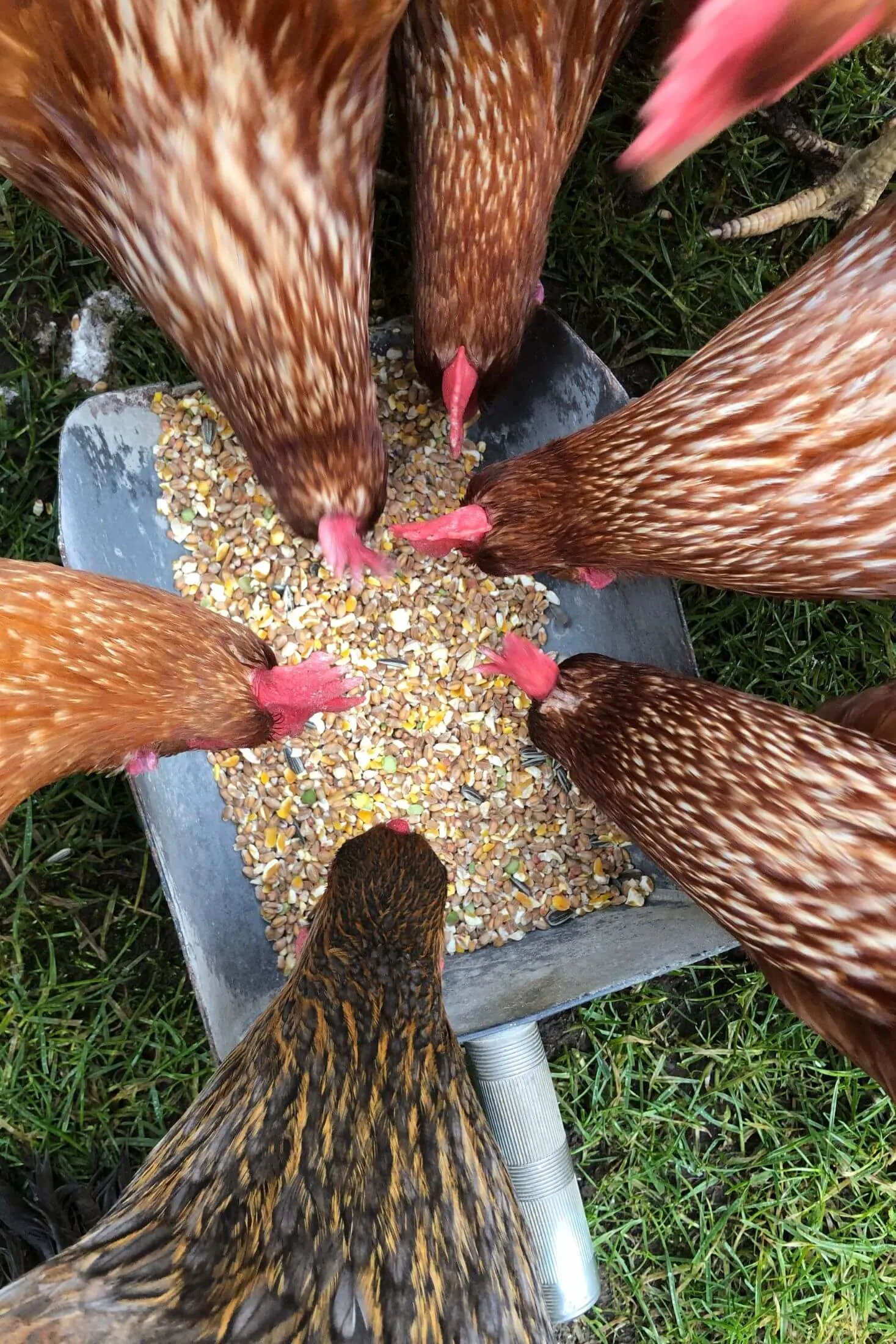
TL;DR
Yes. If you're going to feed cheese to your chickens, it's best to do so in moderation and with proper preparation to ensure their safety. Make sure the cheese isn't too far gone and prepared in a way that's more manageable for your feathered friends. Remember to supply grit, especially when giving your birds non-commercially made foods.
Pin This Guide To Feeding Chickens Cheese!


